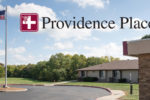Expert Support To Guide Us

Throughout our lives, we are constantly seeking information to help inform our decisions. As humans, we gravitate toward being informed, as it provides a sense of comfort, stability, and validation. Whether it’s comparing prices at the grocery store, seeking specialized advice from an accountant or other expert, or simply making a phone call to a best friend or family member for life advice and support, we are reassured in our decision-making when we feel we have information to support it.

Our health and healthcare is one area of our lives in particular for which we seek out information and expert advice. The desire to inform decisions that could impact our health is so pronounced, in fact, that nutrition facts and safety and health risk disclaimers are not just commonplace, but required and regulated by government agencies. As Americans, we have become increasingly more involved in our healthcare decisions, from which health insurance plan we select each year to comparing prescription drug costs like we would a carton of milk between retailers. Most of us receive an annual physical from our primary care physician, complete with a bloodwork-based health profile and routine age-based cancer screenings. When sick, a physician or other healthcare provider is often our first call to determine the best course of action.
Reassurance in times of need
If we are responsible for the health of other people in our household, the need to consult an expert is even more pronounced. I recall vividly, in the first year after becoming a parent, calling the nurse at our pediatrician’s office often enough that I questioned whether it fell within the normal range of new parent support. Nurse Bonnie always listened calmly and somehow knew how to give me exactly what I needed. Usually, it was reassurance that occurrences like a decline in appetite were normal or a fall and bump on the back of the head just needed to be monitored and didn’t require an ER visit. Other times she responded swiftly, describing in detail the exact medication schedule to keep down a fever, the steps to take if certain warning signs were noticed, and where to go in the middle of the night when that cough did indicate croup and needed immediate medical attention. At times, she seemed to be reading directly from the Merck Manual, though I know her certitude was a symptom of her education, knowledge, and experience as a healthcare provider.
As my kids have grown and I’ve gained experience as a parent, my calls are less frequent but the reassurance I have that expert information and support is only a phone call away remains. Knowing there is an expert to help guide decision-making and deliver medical help when needed is invaluable when you are responsible for another person’s health and safety. As a healthcare provider, Kansas City Hospice & Palliative Care places a priority on being the Kansas City area’s industry leader for trusted, expert information and care during serious illness and end of life. We provide not only relevant, timely solutions for medical needs, we are a source of information for families wanting to understand their care options and make decisions about what level of care is most appropriate for their own or their loved one’s needs.
Specialized Care When you Need It Most
Within both palliative home care and hospice, the care team is multidisciplinary and services are coordinated between all members of the team: physicians, nurses, social workers, art & music therapists, chaplains, bereavement counselors, and volunteers. Services are comprehensive of all needs, including physical, mental, emotional, social, and spiritual. The overall goal of hospice and palliative care for both adults and children is to relieve pain and provide emotional support, comfort, and guidance to patients and their families.
While it’s common to be proactive about healthcare options and benefits throughout most of our lives, this is less true when it comes to healthcare at the end of life. It’s not uncommon for hospice to be a subject that is avoided, especially for those who have not had any experience with it. Just as we are all born and will live with both health and sickness, we will all die and many will have a period in their life during which they need specialized healthcare to manage the symptoms of serious illness and end of life.
It’s the goal of Kansas City Hospice & Palliative Care to ensure access to this level of care from an expert provider is available to all in our community who need it. We are the area’s highest-quality provider, exceeding the national average on seven of eight patient and family experience survey data points. We are also the leading local nonprofit provider, ensuring care for the uninsured and underinsured. We value both these accomplishments equally.

A Leader in Education and Innovation
It’s important that reliable information about end-of-life care is readily available to individuals, families, and healthcare providers. It’s also critical for people to understand the benefits of considering care options early, far before hospice and palliative care are needed. To this end, we are a community education partner providing free educational seminars on topics surrounding end of life and grief. Kansas City Hospice & Palliative Care is also proud to be an instrumental partner in local physician education through the Palliative Care Fellowship Program offered in conjunction with The University of Kansas Medical Center. This partnership is critical to ensuring an adequate local workforce trained and accomplished in specialized serious illness and end-of-life care.
As I think back through the things that have been important to me when making significant decisions in life, whether it be selecting a healthcare provider for my family or choosing where to send my kids for school, the values and priorities of providers have been deciding factors. I know that to truly provide exceptional care and service, someone has to believe in the work they are doing and the people who they are doing it for. Kansas City Hospice & Palliative Care operates by seven Guiding Principles: Compassion, Enrichment, Choices, Expertise, Respect, Balance, Stewardship, and Excellence. These are the principles that guide the way in which services are provided to each and every patient and their family who gives us the honor of caring for them. We know that when it comes to palliative care and hospice, expert care is defined not only by our staff’s training and expertise but by their ability to restore and maintain the peace and beauty of life, at the end of life.







